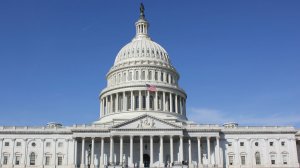Representative Don Beyer states there is no comprehensive legal framework exists to regulate the digital asset market or protect market participants.

The Digital Asset Market Structure and Investor Protection Act was introduced in late July as a piece of legislation that would protect consumers and promote innovation by incorporating digital assets into existing financial regulatory structures.
The proposed legislation was announced by Representative Don Beyer (D-VA), who believes the United States should provide a legal and regulatory environment that promotes this type of innovation which is creating new goods and services.
“Digital assets and blockchain technology hold great promise, and it is clear that assets like Bitcoin and Ether are here to stay. Unfortunately, the current digital asset market structure and regulatory framework is ambiguous and dangerous for investors and consumers.
“Digital asset holders have been subjected to rampant fraud, theft, and market manipulation for years, yet Congress has hitherto ignored the entreaties of industry experts and federal regulators to create a comprehensive legal framework. Our laws are behind the times, and my bill would start the long-overdue process of updating them to give digital asset holders and investors basic protections”.
Today there are over 11,000 separate digital asset tokens in existence, with a market capitalization of over $1.5 trillion and an estimated 20-46 million Americans owning Bitcoin et al, many of whom have been hacked, exposed to market manipulation, or frauds.
Don Beyer states there is no comprehensive legal framework exists to regulate the digital asset market or protect market participants.
As such, the Digital Asset Market Structure and Investor Protection Act of 2021 would promote innovation and US jobs by providing legal and regulatory certainty for digital assets, provide fundamental investor protections to U.S. retail investors and other consumers, improve trade reporting and transparency, strengthen the Bank Secrecy Act requirements related to the treatment of digital assets, and protect U.S. investors in the digital asset sector, said the U.S. Representative for Virginia.
Specifically, the bill would:
– Create statutory definitions for digital assets and digital asset securities and provide the Securities and Exchange Commission (SEC) with authority over digital asset securities and the Commodity Futures Trading Commission (CFTC) with authority over digital assets;
– Provide legal certainty as to the regulatory status for the top 90% of the digital asset market (by market capitalization and trading volume) through a joint SEC/CFTC rulemaking;
– Require digital asset transactions that are not recorded on the publicly distributed ledger to be reported to a registered Digital Asset Trade Repository within 24 hours to minimize the potential for fraud and promote transparency;
– Explicitly add digital assets and digital asset securities to the statutory definition of “monetary instruments,” under the Bank Secrecy Act (BSA), formalizing the regulatory requirements for digital assets and digital asset securities to comply with anti-money laundering, recordkeeping, and reporting requirements;
– Provide the Federal Reserve with explicit authority to issue a digital version of the U.S. Dollar, clarify that digital assets, digital asset securities and fiat based stablecoins are not U.S. legal tender, and provide the U.S. Treasury Secretary with authority to permit or prohibit US Dollar and other fiat-based stablecoins;
– Direct the Federal Deposit Insurance Corporation (FDIC), National Credit Union Administration (NCUA), and Securities Investor Protection Corporation (SIPC) to issue consumer advisories on “non coverage” of digital assets or digital asset securities to ensure that consumers are aware that they are not insured or protected in the same way as bank deposits or securities;
– Require legislative recommendations from FinCEN, SEC and CFTC to provide clarity on dividing lines between who must register as a money services business versus who must register as a securities or commodities exchange.
The proposed legislation was announced the same day SEC Chair Gary Gensler replied to Senator Elizabeth Warren’s letter requesting information about the regulator’s “authority to properly regulate cryptocurrency exchanges and to determine if Congress needs to act to ensure that the SEC has the proper authority to close existing gaps in regulation”.
SEC Commissioners Hester Peirce and Elad Roisman have recently made a public statement – “a gift from the heavens”, according to attorney Jeremy Hogan – admitting to the lack of clarity within the digital asset space, further contributing to Ripple’s claim that it had no fair notice that XRP could be deemed a security.
Ripple’s Fair Notice defense is believed to be a threat to the SEC’s future enforcement actions against the crypto ecosystem. The agency itself warned the Court that a Ripple win on Fair Notice would nullify the Howie Test.
